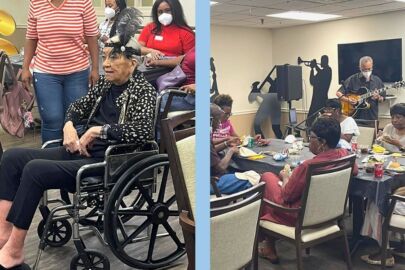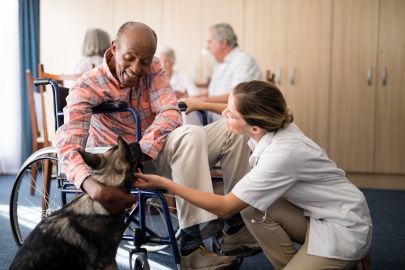Which Type of Care: Assisted Living or Skilled Nursing?
Assisted living is a living option for seniors that offers assistance with daily activities and a community and socialization component. It does not focus on providing medical care. Skilled nursing helps with daily activities but also provides medical care and is often the best choice for someone recovering from surgery or an illness.
Here are seven easy questions for you to consider whether assisted living or skilled nursing is right for your loved one.
- What level of care does your loved one need?
While both provide care and help with daily tasks, if their needs include care such as medication, IV treatment, or daily therapy, they would be better suited for skilled nursing.
- What type of environment would your loved one prefer?
Assisted living can feel more like home and is more of a residential setting. Skilled nursing can still have the compassion and empathetic level of care, but becauseof the higher level of care provided, it is much more clinical feel.
- Is around-the-clock care needed for your loved one?
Skilled nursing has trained and licensed staff on site 24/7 due to the higher level of care needed by residents. Assisted living communities have staff available, however, physicians are most often on-call and not on the premises.
- How important or realistic is protecting your loved one’s independence?
Most assisted living communities allow residents freedom to participate in activities and gatherings as they please, as well as enjoy outings and scenic drives outside the community. Skilled nursing facilities are usually chosen to provide more time-bound and supervised care after an injury or illness.
- How long do you anticipate will be the length of stay?
Assisted living is a long-term living solution. Skilled nursing is typically a short-term need after an unexpected injury, surgery, or illness.
- Does your loved one need rehabilitation to remain at home or a more long-term residential solution?
Skilled nursing has rehabilitation as the target. The patient may go back into assisted living or their home independently, but the goal is to rehabilitate for independence if possible. Assisted living is a new home for seniors that can provide a little help here and there as needed.
- Does your loved one have insurance available to assist with the cost?
In most cases, skilled nursing participates in or is covered by Medicare or Medicaid. Medicare will cover stays in skilled nursing facilities (also referred to as SNFs, nursing homes, convalescence homes, or senior rehab facilities) for short-term rehabilitation following a qualifying hospital stay. Medicaid is a jointly funded federal and state medical assistance program that provides health coverage for low-income Americans with few assets. Unlike Medicare, Medicaid programs for the elderly and disabled do cover various long-term care services. Assisted living, however, is typically self pay and can be funded with long-term care insurance, the sale of real estate, life insurance, veterans aid and attendance, or a bridge loan, but not Medicare or Medicaid.
At Beaumont Health Care Center, we provide dedicated skilled nursing care from a team that will feel like family, on a short-term or long-term basis. If you are unsure if your loved one needs skilled nursing, let us help! If you have any questions or want advice, we are here to be your guide. Click here to contact us today.



